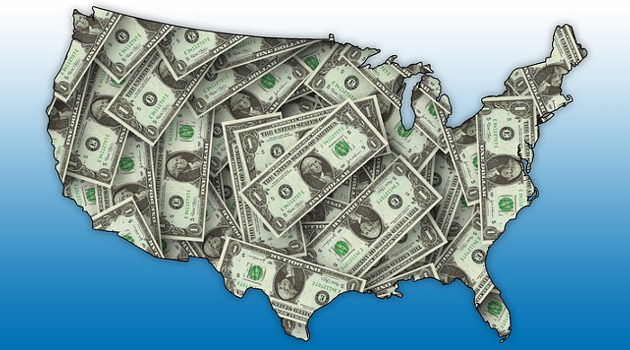Just like with nations, there are many factors that determine whether a state is hindering or enabling economic growth.
But I’m very drawn to one variable, which is whether there’s a state income tax. If the answer is no, then it’s quite likely that it will enjoy better-than-average economic performance (and if a state makes the mistake of having an income tax, then a flat tax will be considerably less destructive than a so-called progressive tax).
Which explains my two main lessons for state tax policy.
Anyhow, I’ve always included Tennessee in the list of no-income-tax states, but that’s not completely accurate because (like New Hampshire) there is a tax on capital income.
That’s the bad news. The good news is that the Associated Press reports that Tennessee is getting rid of this last vestige of income taxation.
The Tennessee Legislature has passed a measure that would reduce and eventually eliminate the Hall tax on investment income. The Hall tax imposes a general levy of 6 percent on investment income, with some exceptions. Lawmakers agreed to reduce it down to 5 percent before eliminating it completely by 2022.
It’s not completely clear if the GOP Governor of the state will allow the measure to become law, so this isn’t a done deal.
That being said, it’s a very positive sign that the state legislature wants to get rid of this invidious tax, which is a punitive form of double taxation.
Advocates are right that this will make the Volunteer State more attractive to investors, entrepreneurs, and business owners.
Keep in mind that this positive step follows the recent repeal of the state’s death tax, as noted in a column for the Chattanooga Times Free Press.
Following a four-year phase out, Tennessee’s inheritance tax finally expires on Jan. 1 and one advocacy group is hailing the demise of what it calls the “death tax.” “Tennessee taxpayers can finally breath a sigh of relief,” said Justin Owen, head of the free-market group, the Beacon Center of Tennessee, which successfully advocated for the taxes abolishment in 2012.
On the other hand, New York seems determined to make itself even less attractive. Diana Furchtgott-Roth of the Manhattan Institute writes for Market Watch about legislation that would make the state prohibitively unappealing for many investors.
New York, home to many investment partnerships, now wants to increase state taxes on capital gains… New York already taxes capital gains and ordinary income equally, but apparently that’s not good enough. …The New York legislators want to raise the taxes on carried interest to federal ordinary income tax rates, not just for New York residents, but for everyone all over the world who get returns from partnerships with a business connection to the Empire State. Bills in the New York State Assembly and Senate would increase taxes on profits earned by venture capital, private equity and other investment partnerships by imposing a 19% additional tax.
Diana correctly explains this would be a monumentally foolish step.
If the bill became law, New York would likely see part of its financial sector leave for other states, because many investors nationwide would become subject to taxes that were 19 percentage points higher….No one is going to pick an investment that is taxed at 43% when they could choose one that is taxed at 24%.
Interestingly, even the state’s grasping politicians recognize this reality. The legislation wouldn’t take effect until certain other states made the same mistake.
The sponsors of the legislation appear to acknowledge that by delaying the implementation of the provisions until Connecticut, New Jersey and Massachusetts enact “legislation having an identical effect.”
Given this condition, hopefully this bad idea will never get beyond the stage of being a feel-good gesture for the hate-n-envy crowd.
But it’s always important to reinforce why it would be economically misguided since those other states are not exactly strongholds for economic liberty. This video has everything you need to know about the taxation of carried interest in particular and this video has the key facts about capital gains taxation in general
Not let’s take a look at the big picture. Moody’s just released a “stress test” to see which states were well positioned to deal with an economic downturn.
Is anybody surprised, as reported by the Sacramento Bee, that low-tax Texas ranked at the top and high-tax California and Illinois were at the bottom of the heap?
California, whose state budget is highly dependent on volatile income taxes, is the least able big state to withstand a recession, according to a “stress test” conducted by Moody’s Investor Service. Arch-rival Texas, meanwhile, scores the highest on the test because of “lower revenue volatility, healthier reserves relative to a potential revenue decline scenario and greater revenue and spending flexibility,” Moody’s, a major credit rating organization, says. …California not only suffers in comparison to the other large states, but in a broader survey of the 20 most populous states. Missouri, Texas and Washington score highest, while California and Illinois are at the bottom in their ability to withstand a recession.
Of course, an ability to survive a fiscal stress test is actually a proxy for having decent policies.
And having decent policies leads to something even more important, which is faster growth, increased competitiveness, and more job creation.
Though perhaps this coyote joke does an even better job of capturing the difference between the two states.

